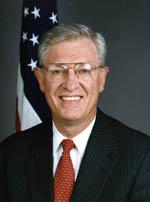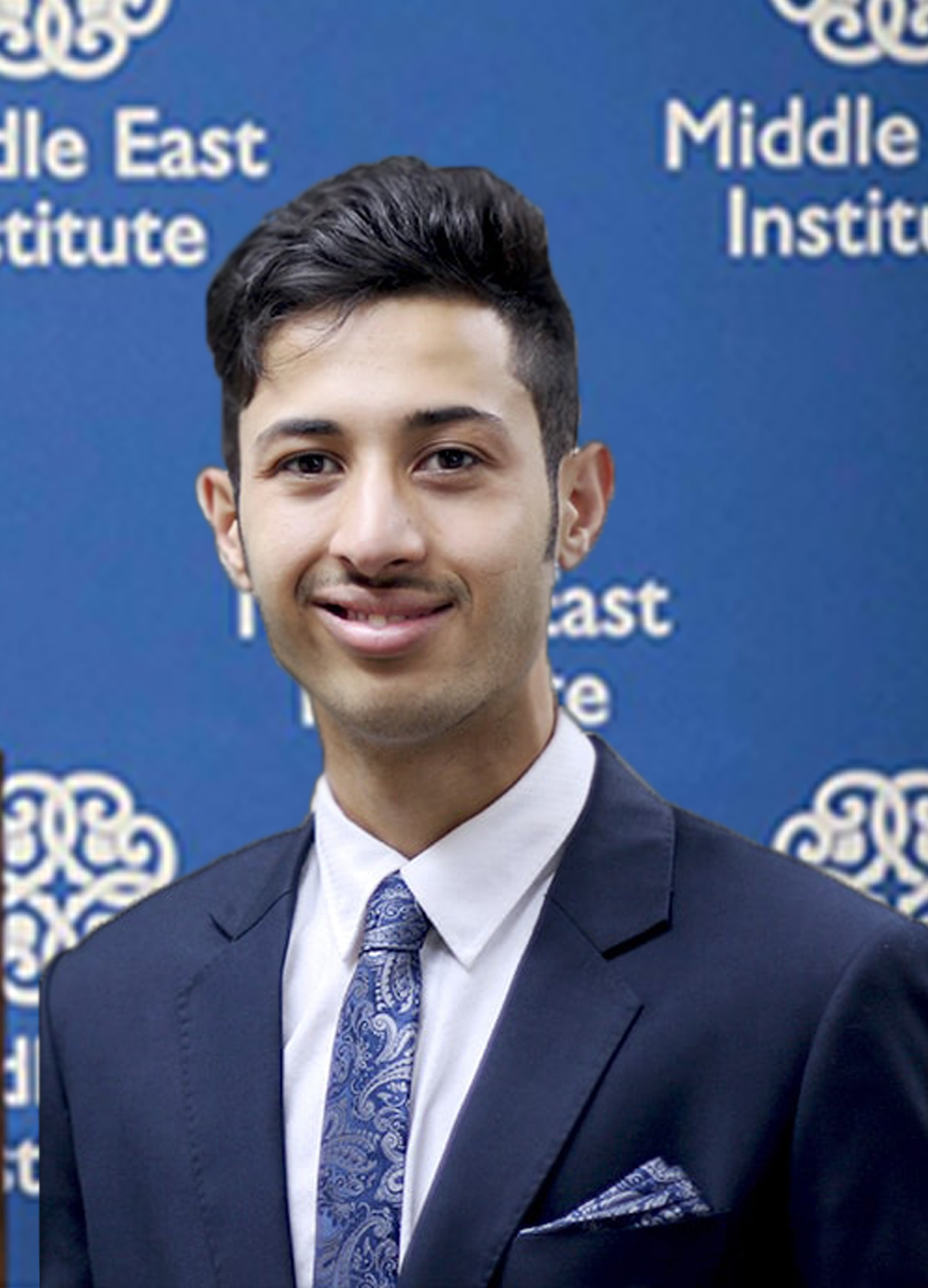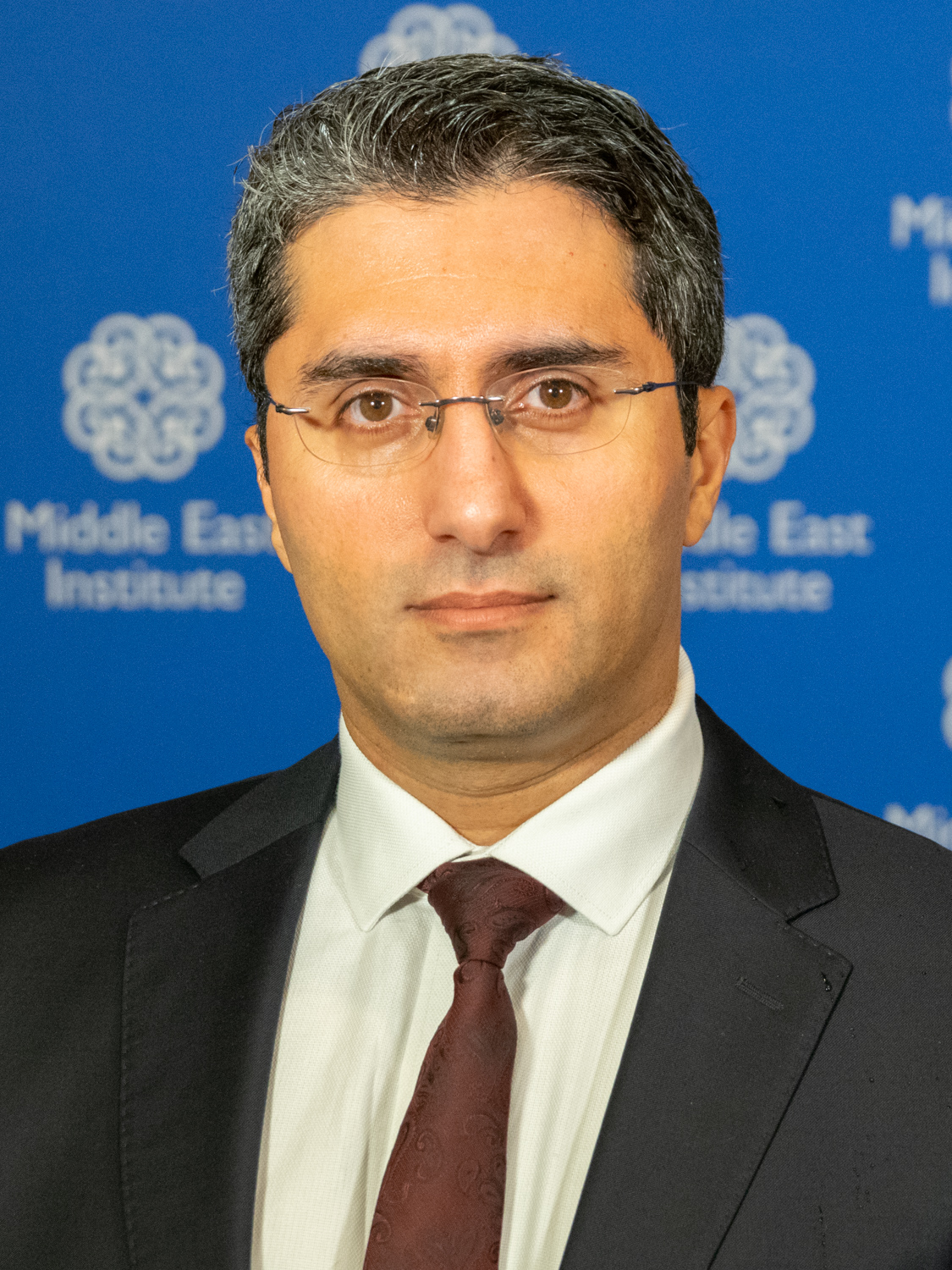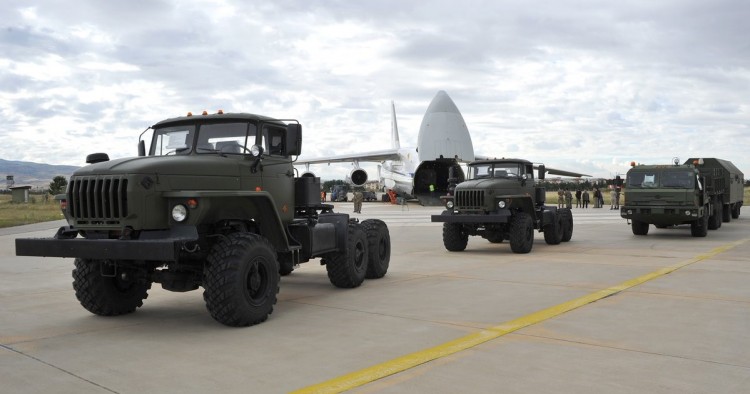This week's briefing on recent news and upcoming events in the region including Turkey's confrontation with the U.S. over its S-400 defense system, the latest round of Afghan peace talks, the UAE's drawdown in Yemen, Turkey's media signaling on Syria, and the 21st consecutive week of protests in Algeria, featuring W. Robert Pearson, Marvin G. Weinbaum, Ibrahim Jalal, Guney Yildiz, and Robert S. Ford.
US and Turkey face S-400 confrontation
W. Robert Pearson
MEI Scholar

On July 11 Turkey forced a direct confrontation with Washington by accepting the first delivery of the Russian S-400 missile defense system to Ankara. More S-400 equipment arrived July 15. Yet Turkish President Recep Tayyip Erdogan has reason to hope for American forbearance. On June 29, President Donald Trump told Mr. Erdogan that Turkey was a victim and the current crisis was the result of mistakes by former President Barack Obama. A fundamental premise of Turkish diplomacy is to cast the country consistently as the victim of others’ actions, absolving Ankara of responsibility. Mr. Trump leapt into this trap presumably without conferring with any of his national security leadership. Now Mr. Erdogan will leverage President Trump to forestall American sanctions.
U.S. sanctions legislation against countries which buy substantial defense equipment from Russia passed the Congress in 2017 by a vote of 419-3 in the House and by 98-2 in the Senate. On July 12, the Senate Armed Services Committee issued a bipartisan statement condemning the delivery as a “troubling signal” of Turkey’s closer “strategic alignment” with Russia and called for immediate sanctions against Turkey. So far the Trump administration is silent. Once before, in December 2018, Mr. Trump surprised his own government with his decision to withdraw all American forces from Syria. That cost him his very highly regarded defense secretary. Congress then forced him to reverse his attempted concession to Mr. Erdogan.
Congressional sentiment on the Turkish S-400 purchase is clear. Will Mr. Trump reverse again under congressional pressure? Silence or delay will encourage Mr. Erdogan in his gambit. Yet an assessment of tough sanctions may push the Turks to Russia’s side, as is Moscow’s aim. With his self-inflicted confusion, Mr. Trump has created another fight with Congress, already doubtful about U.S. Middle East policy, and further roiled U.S.-Turkey relations.
The Taliban revealed at Doha talks
Marvin G. Weinbaum
Director for Afghanistan and Pakistan Studies

The latest round of Afghan peace talks, described by U.S. Special Envoy Zalmay Khalilzad as the “most productive session” to date, concluded on July 9. They came on the back of a two-day summit bringing together a delegation from Afghanistan and Taliban representatives to discuss the groundwork for full-fledged intra-Afghan negotiations. While the details of the U.S.-Taliban meeting remain undisclosed, the all-Afghan dialogue has revealed a great deal, mainly about how the Taliban conceives of a future Afghan state.
The joint resolution that emerged at the end of the all-Afghan meeting is as illuminating for what it fails to say as what it does say. While the participants agreed on a set of conditions for an inclusive intra-Afghan peace process, the Taliban held firm against direct talks with the Afghan government. In fact, the summit itself went ahead only because the attending government representatives agreed to participate in their personal capacities.
Many of the resolution’s pronouncements are platitudes and lack substance. Foremost among these is the agreement among participants that Afghanistan would be governed according to Islamic values, a principle already enshrined in the existing constitution. This highlights a key obstacle to further progress: The Taliban and mainstream Afghan leaders have often fundamentally different conceptions of the state’s role. The same can be said for the declaration that women should be guaranteed their rights, but only in a manner consistent with “Islamic values.” And though participants agreed on the need to reduce violence, limit civilian casualties, and cease attacks on public spaces, these proclamations are not binding. Critically, there is also no mention of a ceasefire.
Considering this lack of substantive progress, some encouragement can be drawn from the intra-Afghan summit in that the various parties sat together amicably in search of common ground. Yet the talks have principally served to strengthen the argument that the peace process has, at every step, legitimized the Taliban at the expense of the Afghan government. Moreover, the Taliban has managed to gain legitimacy without abandoning any core beliefs or compromising on its demands. Rather than negotiations being a Taliban concession for peace, they look increasingly like part of a well-calculated strategy to achieve dominance over the country through political if not military means.
This article was co-authored by Hassaan Sabir, research assistant to Marvin Weinbaum.
UAE drawdown scrambles the board in Yemen
Ibrahim Jalal
MEI Scholar

After more than four years of playing a direct role in the Arab coalition’s offensive against the Iranian-backed Houthi insurgency, the UAE has recently announced a “military drawdown” in Yemen. Responses to this major shift, coordinated with Saudi Arabia, have varied. Riyadh, with whom Abu Dhabi also has a strategic partnership in Libya and Syria, has reportedly replaced the UAE presence in Mocha and Khokha ports, for instance, following the Emirati withdrawal from Hodeida, Marib, and Aden.
Local Yemeni reactions to the UAE decision are mixed, confused, and blurred. Although Islah and the Yemeni ruling elite siding with President Abed Rabbo Mansour Hadi have previously demanded a recalibration or end to the Emirati role, removing the UAE’s anti-missile defense system (i.e. Patriot) and heavy weapons have made local actors more susceptible to Houthi missiles, as was evident in Marib. This vulnerability, compounded by Abu Dhabi’s strong, informal ties with the approximately 90,000 UAE-trained Yemenis, might push the Yemeni elite to rethink things the hard way. The Government of Yemen (GoY) must assess its relations with coalition partners and clearly decide whether pursuing a policy of rapprochement or confrontation with Abu Dhabi will relax tensions and alter the present imbalance of power in liberated territories. Unsurprisingly, the Houthis view the UAE drawdown as a partial victory, hoping for a full-fledged withdrawal of the coalition.
The implications of the drawdown are far-reaching for the trajectory of the conflict: it transforms the Arab coalition from an ad-hoc multilateral security structure into a unilateral, Saudi offensive; substantially weakens the coalition and GoY by withdrawing military capabilities, reducing political and logistical support, and cutting the number of well-trained troops; curtails the coalition’s operational effectiveness; increases the vulnerability of coalition-backed Yemeni forces; and reduces pressure on the Houthis. These consequences are problematic mainly because the military force that brought the Houthi rebels to the table in December has removed itself from the equation, reducing the Houthis’ incentives, if any, to engage constructively in the UN-led peace process. So far, the Houthis are the biggest beneficiary.
Considering the gradual disintegration of the coalition and potential security vacuums the UAE drawdown may cause, the Houthis will likely try to expand their territorial gains militarily and show greater inflexibility toward implementation of the Hodeida agreement and the broader peace process, given their growing confidence that time is on their side. For the GoY this development must rank as the single biggest strategic shift during the war, but only time will tell how other actors respond.
Turkish media and the art of signaling
Guney Yildiz
Non-resident Scholar

If you’ve read the Turkish media in the past week, you might conclude that a cross-border incursion by the Turkish military into the northeastern Syrian territory controlled by U.S.-backed, Kurdish-led Syrian Democratic Forces (SDF) is imminent. You will also have learned about specific military planning details that generally need to be kept a secret, such as that the potential operation will target Tal Abyad, a majority-Arab town in northern Syria. Some senior journalists have even hinted that the S-400 air defense system, which Turkey has newly acquired some parts of from Russia, could be operational and could target U.S. aircraft by the time Turkey starts its “Eastern Euphrates” operation.
You should take the Turkish media seriously. This is not because you will get accurate analysis or read the most factual reporting, but because you should read it with the knowledge that the reports come almost directly from the Turkish decision-makers who brief journalists to publish what they want to project to the world.
So if the Turkish establishment wants the rest of the world to think that they are about to launch an operation into Syria, what do they want to achieve with that? There are two main objectives: The first is that Ankara intends to test Turkish and international public opinion with these reports to see what kind of reaction they would encounter. Turkish military planners might have been encouraged by the short-term success of their operation against the Kurdistan Workers’ Party (PKK) in Iraqi Kurdistan, where the Turkish army is entrenching itself with multiple new permanent military posts.
The second aim is that the Turkish government wants to push the U.S. administration to give it more concessions in northeastern Syria by increasing the stakes — a negotiating tactic that is immortalized by an old Turkish saying that goes cajole someone into accepting malaria as the lesser of two evils by pointing to death as the alternative. The Turkish military has been deploying heavy weapons to areas bordering northeastern Syria with official Turkish media signaling that potential U.S. sanctions over the S-400 could trigger a cross-border operation.
The U.S., on the other hand, negotiates with Turkey on the issue of northern Syria with a different mantra in mind. As it is expressed by James Jeffrey, U.S. representative for Syria engagement, Washington seems to favor pursuing a pro-Turkish policy including asking the People’s Protection Units (YPG), the Kurdish backbone of the SDF, to vacate the border areas to make way for a “safe zone.” Ambassador Jeffrey’s diplomatic overtures have yet to be met with a positive response on the Turkish side though.
Algeria at an impasse
Robert S. Ford
Senior Fellow

On July 14 Algerian protesters staged the 21st consecutive week of large national demonstrations demanding the current government resign and rejecting its call for prompt new presidential elections. The protest movement, whose leadership remains diffuse, has secured once unimaginable changes in the stolid political system with a former president cached, two former prime ministers and leaders of the once-powerful security apparatus in jail, and even a moderate Islamist opposition figure chosen to head the lower house of Algeria’s parliament — the first time an opposition politician has held that post. Algerian Army Chief of Staff Gen. Ahmed Gaid Salah has pushed through or countenanced all of these actions, firmly entrenching the army’s authority against old system rivals in the process. Gaid Salah has initiated weekly political addresses to the country urging national unity and realism from the protest movement.
The protest movement and its backers reject the call. Opposition parties are weak and disagree about whether to deal with the government or pursue elections. The interim president, despised by the street protest movement, saw his constitutionally mandated term expire July 9 but he remains in place indefinitely under Gaid Salah’s ultimate authority. The country is at an impasse. In recent weeks security forces have begun trying to restrain the street protests and have detained 60 marchers. These army moves are hardening the protest movement’s demands and impeding the launch of a dialog. Algeria is enjoying a rare moment of unity as its national soccer team has advanced to the Africa Cup finals. The army will provide nine aircraft to ferry fans to Egypt for the July 19 championship game. The gesture won’t much help the Algerian army’s image. Street protesters often promise they won’t repeat the experience of Egyptians who thought General Abdel-Fattah el-Sissi was a friend of the Egyptian revolution.
The Middle East Institute (MEI) is an independent, non-partisan, non-for-profit, educational organization. It does not engage in advocacy and its scholars’ opinions are their own. MEI welcomes financial donations, but retains sole editorial control over its work and its publications reflect only the authors’ views. For a listing of MEI donors, please click here.













